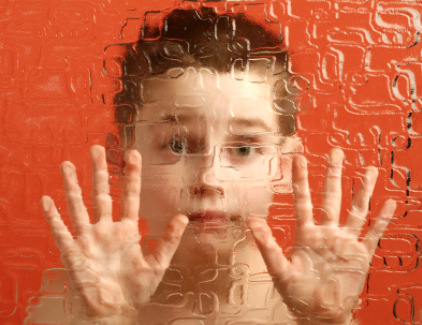Sensory Sensitivity & Kids: How Can They Cope?

Photo courtesy of hepingting via Flickr, Creative Commons
Guest blogger Philip Masterson and his wife are first time parents of an amazing little boy. In this post, Philip describes how they have addressed the sensory sensitivity issues that go along with his diagnosis of autism.
Sensory Sensitivity & Kids: How Can They Cope?
As new parents, my wife and I were determined to get parenting right the first time. We were very keen on documenting our son’s first milestones and celebrating his tiny achievements. Although every child is different, there were a few behavioral signs that bothered us immensely.
At six months, our son seemed to have trouble making eye contact during playtime. He didn’t follow objects visually, but sometimes got overly distracted by faint sounds. When he turned a year old, he still had trouble responding to his name, and rarely made gestures to communicate.
We read about the early signs of autism, and found that our son was showing possible symptoms. We consulted a professional, and after a series of tests it was confirmed that our son had autism. My wife and I were devastated, but we knew that we had to deal with the situation in a proactive manner.
What Is Sensory Sensitivity?
First, we educated ourselves on how to raise a child with autism, and one thing was apparent; children with autism often struggled with sensory sensitivity. This means that they have difficulty processing basic sensory information such as sights, sounds, and smells. They find it hard to organize, prioritize, and comprehend these information, and it can oftentimes lead to stress, anxiety, and even physical pain. Children can either be hypo (under-sensitive) or hyper (over-sensitive) to sensory information.
Sensory Sensitivity and Playtime
Sensory sensitivity, if not dealt with appropriately, can have a profound, damaging effect on a person’s life. We wanted to address our son’s playtime and special needs as early as possible, so we integrated helpful techniques in our day-to-day activities.
We looked closely at the things that created difficulty for our son, and made it a point to alter it to suit his sensory preferences. When we noticed that he was hypersensitive to fluorescent lights, we started to use deep-colored light bulbs instead. He was easily irritated by loud sounds from outside, so we often made him listen to some relaxing piano music.
Some days we bring him to an accessible playground near our home so that he can interact with his peers. This way, he learns to associate certain sensory stimuli with fun and laughter, and it might even help him overcome his hypersensitivity. It’s all trial and error sometimes, but we’ll never get tired of finding ways to make our son’s life easier.
Sensory Sensitivity and Toddlers
Addressing sensory sensitivity in toddlers is quite challenging, since it’s hard to distinguish normal responses from sensory difficulties. But with a good amount of reading, strict monitoring, regular consultation, and a few creative tweaks in day-to-day activities, nothing is too hard to battle.
Our son is now 18 months, and while he struggles a little more than other children, he still never fails to surprise us with his little feats and triumphs. This gives us hope that one day, he’ll learn to deal with the sensory sensitivity that is part of his autism in such a way that it won’t hinder him from achieving his dreams, but rather, build his character and ability to work towards them.
Your Sensory Sensitivity Tips?
Do you have a child who’s sensory sensitive? What coping strategies and adaptations have you discovered? Leave a comment in the box so we can learn from one another. Thanks!
Do you like what you see at DifferentDream.com? You can receive more great content by subscribing to the quarterly Different Dream newsletter and signing up for the daily RSS feed delivered to your email inbox. You can sign up for the first in the pop up box and the second at the bottom of this page.
Subscribe for Updates from Jolene
Related Posts
Jesus Loves Me This I Know
Mark Arnold takes comfort and encouragement from his son’s rendition of “Jesus Loves Me,” which has been shared with so many.
Greater Love for Caregiving Parents
Karen Wright explains how her own grief about her son’s disability has created in her a greater love for caregiving parents.
Does God Speak Dutch?
Guest Blogger Steve Harris ties a favorite Christmas movie to a favorite poem to bring encouragement to special needs parents.







0 Comments